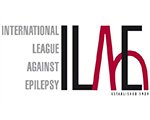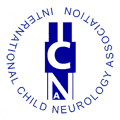Epilepsy
Description
Epilepsy is a central nervous system (neurological) disorder in which brain activity becomes abnormal, causing seizures or periods of unusual behavior, sensations, and sometimes loss of awareness. Anyone can develop epilepsy; it affects both males and females of all races, ethnic backgrounds, and ages.
Causes of Epilepsy
The causes of epilepsy may be varied and can include:
- Genetic Factors: Some types of epilepsy, which are categorized by the type of seizure or part of the brain that is affected, run in families. These epilepsies may be due to genetic mutations that affect brain function.
- Structural Brain Conditions: Brain damage from prenatal injury, conditions like cerebral palsy, developmental disorders, brain tumor, stroke, or traumatic brain injury can lead to epilepsy.
- Infectious Diseases: Infections such as meningitis, viral encephalitis, and AIDS can cause epilepsy.
- Autoimmune Disorders: Some autoimmune disorders can lead to epilepsy as part of an immune response that affects the brain.
Types of Seizures
Epilepsy is generally classified based on the type of seizure experienced:
- Focal onset Seizures (Partial Seizures): These begin in one area of the brain. Symptoms vary depending on the part of the brain involved, and can range from spontaneous sensory phenomena to uncontrollable jerking movements. Focal seizures can also spread to other areas of the brain and become generalized.
- Generalized onset Seizures: These affect both sides of the brain from the start. Types include absence seizures (brief loss of awareness), tonic-clonic or grand mal seizures (characterized by shaking and a loss of consciousness), and myoclonic seizures (sporadic jerks of the arms and legs).
Investigations/Workup
The diagnosis of epilepsy involves a series of tests to rule out other conditions that might cause similar symptoms and determine the type of epilepsy. These include:
- Electroencephalogram (EEG): This is the most common test used to diagnose epilepsy. It records the electrical activity of the brain and identifies any abnormalities that may indicate the presence of epilepsy.
- Brain Scans: Imaging tests such as MRI or PET scans can detect brain abnormalities that might be causing the seizures.
- Blood Tests: These can help identify signs of infections, genetic conditions, or other conditions that may be associated with seizures.
- Neuropsychological Tests: Assess cognitive function and how epilepsy affects the brain.
Treatment of Epilepsy
Treatment for epilepsy is tailored to control seizures as much as possible and may include:
- Medications: Anti-seizure medications can control seizures in about 70% of patients. The type of medication prescribed depends on the type of seizures, age of the patient, potential side effects, and other co-existing conditions.
- Surgical Options: Surgery might be an option for people who don't respond to medications and have focal seizures. This includes removing the area of the brain where seizures originate or using procedures to limit the spread of seizure activity.
- Dietary Approaches: The ketogenic diet, a high-fat, low-carbohydrate diet, is sometimes used to help control seizures.
- Neurostimulation: Devices such as the vagus nerve stimulator or the responsive neurostimulator might be recommended to help prevent seizures by sending electrical pulses to the brain.
Professor Ubaid Shah’s comprehensive approach to managing epilepsy incorporates advanced diagnostic techniques and tailored treatment plans, including the latest in medication, lifestyle adjustments, surgical techniques, and supportive therapies designed to enhance the quality of life for patients and their families.








